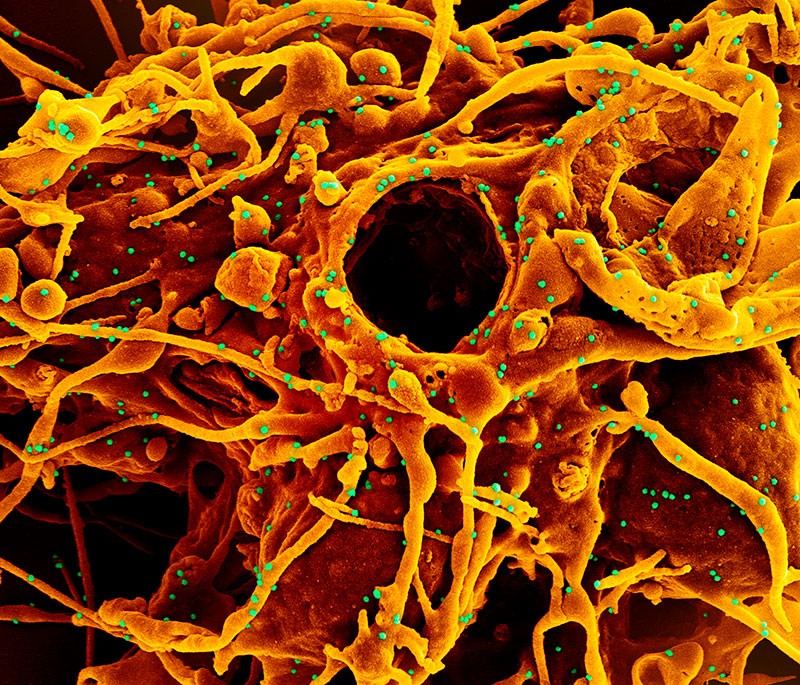25. Mar, 2022
Vakcinace v těhotenství a nežádoucí účinky
Situace v Evropě je nyní velmi složitá. Ve světle krutostí na Ukrajině se tak zdá, jakoby problém COVID zcela vymizel. Bohužel tomu tak není. Máme nyní problémy dva. V ČR jsou předkládána čísla, která mají ukázat na příznivou situaci ve vývoji epidemie. Situace však tak jednoduchá není. A dokládají to i údaje od našich sousedů - Rakouska a Německa, kde se opět vracejí k zavedení některých opatření.
Názory skupiny, která šíří informace o škodlivosti očkování, jsou nyní sice vzácnější, ale stále se objevují, např. o škodlivosti nebo dokonce nebezpečnosti vakcinace vakcínami mRNA pro těhotné ženy.
Uvádím zde výsledky dvou recentních studií uveřejněných v časopise JAMA:
1) March 24, 2022
Association of SARS-CoV-2 Vaccination During Pregnancy With Pregnancy Outcomes
Rickard Ljung, MD, PhD4,5; Fredrik Skår, MD6; Laura Oakley, PhD1,7; Ferenc Macsali, MD, PhD8,9; Björn Pasternak, MD, PhD2,10; Håkon K. Gjessing, PhD1,11; Siri E. Håberg, MD, PhD1; Olof Stephansson, MD, PhD2,12
Author Affiliations Article Information
JAMA. Published online March 24, 2022. doi:10.1001/jama.2022.3271
Results Among the 157 521 singleton births included in the study (103 409 in Sweden and 54 112 in Norway), the mean maternal age at the time of delivery was 31 years, and 28 506 (18%) were vaccinated against SARS-CoV-2 (12.9% with BNT162b2, 4.8% with mRNA-1273, and 0.3% with AZD1222) while pregnant. A total of 0.7%, 8.3%, and 9.1% of individuals delivering were vaccinated during the first, second, and third trimester, respectively. Vaccination against SARS-CoV-2 was not significantly associated with increased risk of preterm birth (6.2 vs 4.9 per 10 000 pregnancy days; adjusted hazard ratio [aHR], 0.98 [95% CI, 0.91 to 1.05]; I2 = 0%; P for heterogeneity = .60), stillbirth (2.1 vs 2.4 per 100 000 pregnancy days; aHR, 0.86 [95% CI, 0.63 to 1.17]), small for gestational age (7.8% vs 8.5%; difference, –0.6% [95% CI, –1.3% to 0.2%]; adjusted OR [aOR], 0.97 [95% CI, 0.90 to 1.04]), low Apgar score (1.5% vs 1.6%; difference, –0.05% [95% CI, –0.3% to 0.1%]; aOR, 0.97 [95% CI, 0.87 to 1.08]), or neonatal care admission (8.5% vs 8.5%; difference, 0.003% [95% CI, –0.9% to 0.9%]; aOR, 0.97 [95% CI, 0.86 to 1.10]).
Conclusions and Relevance In this population-based study conducted in Sweden and Norway, vaccination against SARS-CoV-2 during pregnancy, compared with no SARS-CoV-2 vaccination during pregnancy, was not significantly associated with an increased risk of adverse pregnancy outcomes. The majority of the vaccinations were with mRNA vaccines during the second and third trimesters of pregnancy, which should be considered in interpreting the findings.
2) March 24, 2022
Association of COVID-19 Vaccination in Pregnancy With Adverse Peripartum Outcomes
Eszter Török, PhD2,3; Sheryll Dimanlig-Cruz, MSc1,2,3; Annette K. Regan, PhD4,5; Ann E. Sprague, PhD2,3; Sarah A. Buchan, PhD6,7; Jeffrey C. Kwong, MD6,7,8,9; Sarah E. Wilson, MD6,7; Siri E. Håberg, MD, PhD10; Christopher A. Gravel, PhD1,11; Kumanan Wilson, MD12,13,14; Darine El-Chaâr, MD1,13,15; Mark C. Walker, MD1,2,3,13,15; Jon Barrett, MD16; Shannon E. MacDonald, PhD17,18,19; Nannette Okun, MD20; Prakesh S. Shah, MD21,22,23,24; Shelley D. Dougan, MSc2,3; Sandra Dunn, PhD2,3,25; Lise Bisnaire, PhD2,3
Author Affiliations Article Information
JAMA. Published online March 24, 2022. doi:10.1001/jama.2022.4255
Results Among 97 590 individuals (mean [SD] age, 31.9 [4.9] years), 22 660 (23%) received at least 1 dose of COVID-19 vaccine during pregnancy (63.6% received dose 1 in the third trimester; 99.8% received an mRNA vaccine). Comparing those vaccinated during vs after pregnancy (n = 44 815), there were no significantly increased risks of postpartum hemorrhage (incidence: 3.0% vs 3.0%; aRD, −0.28 per 100 individuals [95% CI, −0.59 to 0.03]; aRR, 0.91 [95% CI, 0.82-1.02]), chorioamnionitis (0.5% vs 0.5%; aRD, −0.04 per 100 individuals [95% CI, −0.17 to 0.09]; aRR, 0.92 [95% CI, 0.70-1.21]), cesarean delivery (30.8% vs 32.2%; aRD, −2.73 per 100 individuals [95% CI, −3.59 to −1.88]; aRR, 0.92 [95% CI, 0.89-0.95]), NICU admission (11.0% vs 13.3%; aRD, −1.89 per 100 newborns [95% CI, −2.49 to −1.30]; aRR, 0.85 [95% CI, 0.80-0.90]), or low Apgar score (1.8% vs 2.0%; aRD, −0.31 per 100 newborns [95% CI, −0.56 to −0.06]; aRR, 0.84 [95% CI, 0.73-0.97]). Findings were qualitatively similar when compared with individuals who did not receive COVID-19 vaccination at any point (n = 30 115).
Conclusions and Relevance In this population-based cohort study in Ontario, Canada, COVID-19 vaccination during pregnancy, compared with vaccination after pregnancy and with no vaccination, was not significantly associated with increased risk of adverse peripartum outcomes. Study interpretation should consider that the vaccinations received during pregnancy were primarily mRNA vaccines administered in the second and third trimester.

